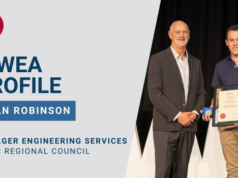
The Victorian Government announcement that engineers will require statutory registration from July 1, 2021 has received some pushback from industry, which claims the move will increase red tape and burden engineers financially without providing a clear benefit.
Despite this criticism, states and territories around the country – including NSW – appear to be following Victoria’s lead, bringing us closer to mandatory registration for engineers nationally.
The plan to introduce mandatory registration in Victoria was part of a suite of infrastructure-related reforms Premier Daniel Andrews took to the state election in 2014 and has pursued ever since. (Other measures include the creation of the Office of the Chief Engineer and the establishment of Infrastructure Victoria.)
According to the Victorian Government, engineer registration is an important consumer-protection initiative that will give individuals and organisations assurance that the people they hire are properly trained and experienced, and are maintaining their skills. Put another way, the proposed requirements will give consumers confidence in what they are buying.
Victorian Labor hopes to take a national leadership position on the issue. According to a consultation paper, published in 2016, the reforms are part of the party’s commitment to “work with other jurisdictions to develop a nationally consistent registration scheme for engineers” to raise standards across the profession and reduce the risk of harm and loss to the public.
But not everyone is convinced. Some engineers see the proposal as an unnecessary burden, both in terms of time and cost. They also argue there have been no major market failures in Victoria that necessitate such a move: no one can point to a bridge or building collapse or some other catastrophic event proving the need to regulate engineers across the state.
In response, Andrews might highlight recent industrial accidents, such as the Melbourne CBD wall collapse in 2013, which killed three people, as reasons why all engineers should be registered. Broadly, Labor says its industrial relations platform will strengthen safety and accountability within the construction industry.
Despite the objections of some engineers, it seems unlikely the Andrews Government will walk back on its current plan for regulation. Not only did Labor make registering engineers an important part of its reform agenda, it seems to have succeeded in inspiring other states and territories to follow suit. Although Queensland has been regulating engineers since 1929, no other state or territory made a serious move to do the same until Victoria stepped up.

Now, NSW has announced plans for a similar scheme, also due to take effect in 2021. IPWEA understands discussions are also taking place in Western Australia and South Australia. Before too long, engineers may be required to register to practise anywhere in the country.
The Andrews Government says it intends to model its registration legislation on Queensland’s, which will make it easier for Victorian engineers to pick up jobs in the Sunshine State and vice versa. The hope is other states and territories will take the same approach, so state-based registration requirements don’t act as a barrier to engineers working interstate.
Although Consumer Affairs Victoria – the agency with carriage of the legislation – recently published guideline documents and invited submissions in response, IPWEA believes the introduction of legislation “as is” on July 1, 2021 is a foregone conclusion. Therefore, engineers practising in Victoria should start preparing for a new reality.
Our expectation is that, as well as having to meet qualification and experience requirements to become registered in the first instance, engineers will have to undertake 150 hours of professional development activity every three years to renew their registration. That’s a significant commitment in time and money.
But IPWEA stands ready to help. Across all our divisions, we have long been a provider of professional development services, from training courses and leadership programs to conferences and webinars. Many Victorian engineers already take advantage of the training we offer.
With the upcoming legislation in mind, we have launched a new service, LEAP: an online, on-demand CPD portal providing aggregated training content for engineers nationwide. We expect engineers around the country to take advantage of LEAP as a one-stop shop for their professional development requirements, with IPWEA member activity automatically recorded in a digital CPD Diary.
In addition to the CPD content IPWEA develops in-house, we will be establishing relationships with other providers in the sector and making their content available through the LEAP portal. In that way, we can provide a much broader offering to the sector than we could otherwise. We want LEAP to become the country’s premier resource for engineers needing to undertake professional development training.













